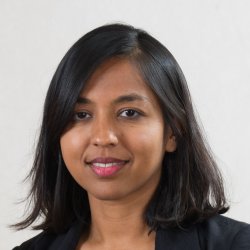Understanding galaxy evolution and cosmology using the Local Group of galaxies
This project will use data from the most outstanding photometric and spectroscopic facilities as well as state-of-the-art simulations to understand how galaxies form and evolve.
Start date
1 October 2023Duration
3.5 yearsApplication deadline
Funding source
STFCFunding information
UKRI standard stipend (£16,062 for 2022-23).
About
Our Local group of galaxies is an ideal laboratory for the study of both cosmology and galactic evolution. As these galaxies are all nearby, we can resolve their stars in exquisite detail and compare our observations with predictions from state-of-the-art simulations. In the next few years, we expect a step-change in the data available for nearby galaxies with the advent of the WEAVE spectroscopic survey and the Vera Rubin Large Survey of Space and time. These new facilities will allow us to better map out our Milky Way galaxy, forensically evaluate our nearest neighbours like the Large and Small Magellanic Clouds, uncover the faintest galaxies in the Universe and place constraints on the dark matter particle.
We are seeking a PhD student to join the Astrophysics group at the University of Surrey and assist us with exploiting this new data. You will work with your supervisor and the larger astrophysics group to develop and apply novel analysis techniques (including machine learning and AI methods) to these datasets in order to place meaningful constraints on the process of galaxy formation and dark matter. The PhD project can be more focused on observational or computational methods depending on the students interests. Within our group, we have staff working on key problems from the smallest to the largest scales: stars and galaxies, evolution of the Milky Way, dark matter and dark energy, formation and evolution of supermassive black holes, and sources of gravitational waves. We combine multi-scale numerical simulations with observational data to advance our knowledge of the Universe.
The student will learn vital skills for the future, including close team-work and resilience for working under pressure. Students will become proficient in data science techniques, advanced programming languages, statistical techniques, and hypothesis testing and reasoning. Students will be expected to present their work to international audiences through peer-reviewed articles and conference seminars.
Eligibility criteria
Open to any UK or international candidates. Up to 30% of our UKRI funded studentships can be awarded to candidates paying international rate fees. Find out more about eligibility.
How to apply
Applications should be submitted via the Physics PhD programme page. In place of a research proposal you should upload a document stating the title of the project that you wish to apply for and the name of the relevant supervisor.
Studentship FAQs
Read our studentship FAQs to find out more about applying and funding.
Application deadline
Contact details

Studentships at Surrey
We have a wide range of studentship opportunities available.


